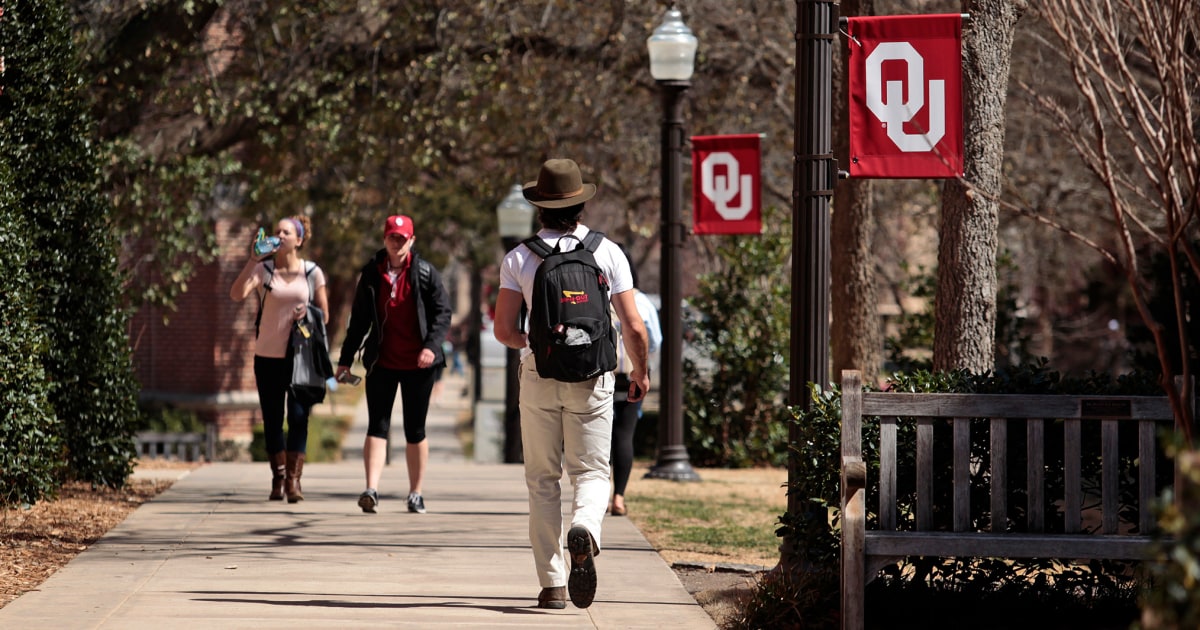Three white students at the University of Oklahoma are suing the university over allegations of pro-Black discrimination.
The lawsuit, which accuses the university of unfairly prioritizing racial diversity in distributing scholarships, is the latest in a spate of anti-diversity lawsuits that have been filed since conservative Supreme Court justices outlawed race-conscious affirmative action policies on college campuses last year.
The suit is part and parcel of what we can expect if Donald Trump is elected this November and, as he’s promised, prioritizes rooting out what he’s called “anti-white feeling” in the United States.
The class action lawsuit claims to represent scores of “current, present, and future” undergrad students. But it names three student plaintiffs in particular: Kayla Savage, Logan Rhines and Brayden Johnson. They claim the University of Oklahoma unlawfully “places a high value on diversity,” which they say resulted in them receiving fewer scholarships than they would have had they been Black.
As evidence, the suit points to various programs that the plaintiffs say exhibit race-based preferences, like orientations for Black students. The lawsuit frames these programs as “racially exclusionary” — although such programs are, by law, almost always available to non-Black students who want to participate (speaking anecdotally as a former Black student organization president). Nonetheless, the lawsuit cites these examples to portray the university as discriminating against white students.
On top of the Black-friendly programming, the suit cites a “statistical analysis” that purportedly shows that Black students receive “more institutional grant aid from the University of Oklahoma than other students, even when controlling to the extent possible for factors such as family income.”
The lawsuit also claims that plaintiff Savage, who was apparently ineligible for scholarship funds, was told by an unnamed admissions official that “financial aid was generally not available to students like her, but would have been if she were African American.” Notably, the suit doesn’t clarify whether this was merely someone’s opinion (which would align with some common misconceptions) or, as the suit suggests, was a declaration of official university policy.
The lawsuit is seeking compensatory damages.
Reading through it, I was reminded of Viola Fletcher, who, at 110 years old, is the oldest survivor of the 1921 Tulsa Race Massacre. Fletcher is still seeking recompense for the racist violence wrought upon her community during one of the deadliest race-based attacks in U.S. history.
It defies logic that a state that’s still struggling to reckon with its devastating history could, at the same time, be harboring elite institutions like universities that would be functionally anti-white. But that’s the idea essentially at the basis of this lawsuit.


Leave a Reply